Deborah Swift's Blog, page 53
March 1, 2011
The Tuesday Tip
On Tuesdays I post a tip for writers.
Today - Repetition.
Remember trawling through your manuscript trying to spot the repetitions, such as "Who's calling," he called.
Or perhaps, "He eyed the maid with interest. "Aye," he said, looking her in the eye, "I'm Iron Jack, the ironmonger, and I've come to collect Eileen's ironing."
I know, none of your writing is as bad as that. But if you laughed guiltily at the first example, here is the answer. A neat little downloadable gadget that will scan your manuscript for you and do all the hard work.
Here's the link.
http://www.gaddy.fr/repetitiondetector/online.php?l=en
Today - Repetition.
Remember trawling through your manuscript trying to spot the repetitions, such as "Who's calling," he called.
Or perhaps, "He eyed the maid with interest. "Aye," he said, looking her in the eye, "I'm Iron Jack, the ironmonger, and I've come to collect Eileen's ironing."
I know, none of your writing is as bad as that. But if you laughed guiltily at the first example, here is the answer. A neat little downloadable gadget that will scan your manuscript for you and do all the hard work.
Here's the link.
http://www.gaddy.fr/repetitiondetector/online.php?l=en
Published on March 01, 2011 08:20
February 26, 2011
Unpublished Novel Competition
Calling all unpublished novelists - yes even genre fiction and experimental -
2011 Unbound Press Best Novel Award
Deadline: Thu 1 Sep 2011
Submit the first 10,000 words of your novel. There is no theme. All styles (including experimental) and genre-based fiction (mystery, crime, fantasy, science fiction, historical) are welcome.
Closing Date: September 1, 2011
Winning and Honorable Mention entries notified no later than December 31, 2011
1st Prize – £500 and Publication
2nd Prize – £250 and Publication
Honorable Mentions – Free, detailed critique of the novel
Entry fee £20
http://bit.ly/ihGdfl
What are you waiting for?
2011 Unbound Press Best Novel Award
Deadline: Thu 1 Sep 2011
Submit the first 10,000 words of your novel. There is no theme. All styles (including experimental) and genre-based fiction (mystery, crime, fantasy, science fiction, historical) are welcome.
Closing Date: September 1, 2011
Winning and Honorable Mention entries notified no later than December 31, 2011
1st Prize – £500 and Publication
2nd Prize – £250 and Publication
Honorable Mentions – Free, detailed critique of the novel
Entry fee £20
http://bit.ly/ihGdfl
What are you waiting for?
Published on February 26, 2011 06:24
February 24, 2011
My Award
Quote of the day from Hilary Mantel:
"Unlike the historian, the novelist doesn't operate through hindsight. She lives inside the consciousness of her characters for whom the future is blank."
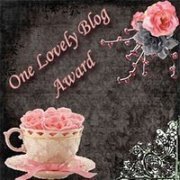 I've won an award! No, unlike Hilary Mantel, nobody has yet given me an award for my writing.But thank you to Fi and her Magical Writing Haven for giving me the
I've won an award! No, unlike Hilary Mantel, nobody has yet given me an award for my writing.But thank you to Fi and her Magical Writing Haven for giving me the
'One Lovely Blog Award'.
Here are the rules for the award: (For those of you who hate chain letters, it's ok, you won't get bad luck if you don't comply, and I'm afraid I can't promise you thirty thousand books by next week)
Most important:
Accept the award! Then post it on your blog together with the name of the person who has granted the award and their blog link.
Pass the award on to 15 other blogs that you've newly discovered.
Remember to contact the bloggers to let them know they have been chosen for this award.
Here are my award winners: I'm afraid I can't think of 15 right now, but here are 10 it is definitely worth your time checking out:
The Secret Writer
Nevets QST
Jen Black Author
The Literary Project
Veggiebox (author Aliya Whiteley)
Park Benches and Bookends
Frances Garrood
Historical Belles and Beaus
The Virtual Victorian
Alis Hawkins
Macmillan New Writers - I haven't included you all, so it leaves space for you to do this too if you feel like it.
"Unlike the historian, the novelist doesn't operate through hindsight. She lives inside the consciousness of her characters for whom the future is blank."
 I've won an award! No, unlike Hilary Mantel, nobody has yet given me an award for my writing.But thank you to Fi and her Magical Writing Haven for giving me the
I've won an award! No, unlike Hilary Mantel, nobody has yet given me an award for my writing.But thank you to Fi and her Magical Writing Haven for giving me the 'One Lovely Blog Award'.
Here are the rules for the award: (For those of you who hate chain letters, it's ok, you won't get bad luck if you don't comply, and I'm afraid I can't promise you thirty thousand books by next week)
Most important:
Accept the award! Then post it on your blog together with the name of the person who has granted the award and their blog link.
Pass the award on to 15 other blogs that you've newly discovered.
Remember to contact the bloggers to let them know they have been chosen for this award.
Here are my award winners: I'm afraid I can't think of 15 right now, but here are 10 it is definitely worth your time checking out:
The Secret Writer
Nevets QST
Jen Black Author
The Literary Project
Veggiebox (author Aliya Whiteley)
Park Benches and Bookends
Frances Garrood
Historical Belles and Beaus
The Virtual Victorian
Alis Hawkins
Macmillan New Writers - I haven't included you all, so it leaves space for you to do this too if you feel like it.
Published on February 24, 2011 06:09
February 22, 2011
Fashionable Punctuation!
I have just been reading a historical novel which I very much enjoyed, (I'll call it Book A) but what what struck me on reading it was how many exclamation marks there were on every page! I had a look back to its publication date and found it was first published in 1993!
I have recently read another book published by the same author (I'll call it Book B), this one was published in 2005 and the exclamation marks in it are a very rare breed indeed. Barely a one.
Here is an example from Book A :
"More," she said. "No! don't go!" Her arms closed tighter."I'll be so cold! Stay with me!"
I'm fairly sure that if this passage were in Book B it would read:
"More," she said. "No. Don't go." Her arms closed tighter. "I'll be so cold. Stay with me."
So what has happened to the exclamation marks? Is it that as readers we prefer a more serious tone these days? For without them the passage certainly reads to me as more intimate and less melodramatic. Are there writers out there who have ceased to use exclamation points, and if so, why?
I have read in several creative writing books that exclamation marks are to be avoided in dialogue unless the person is actually shouting. This idea seems to have spread so that we are inclined to believe that any fiction with exclamation marks must be bad fiction.
Renni Browne in "Self-editing for Fiction Writers" says that:
"...there are the stylistic devices that make a writer look insecure, the most notable offenders being exclamation points and italics."
In Book A , the writer certainly did not look insecure, though there were at least one and sometimes as many as six exclamation marks on most pages. But it seems to me the reader is pretty adept at catching the prevailing tone of the book irrespective of the individual punctuation marks, and it was still a gripping and enjoyable read, and was reprinted again recently and was very well received. The punctation seemed a necessary part of her style.
So my question is - is the fashion for no exclamation marks just a fashion, or does it signify that we want to read a different, more serious type of literature?
I have to admit, they are rare on my pages, but then I am the product of a recent creative writing course where they nearly always got a red line through them when they did dare to appear. Perhaps it is the advent of creative writing courses, where the participants must be seen to be producing "serious" work that have endangered the exclamation point.
And by the way, I highly recommend "Self-editing for Fiction-Writers", especially for writers with no critique group to help them along.
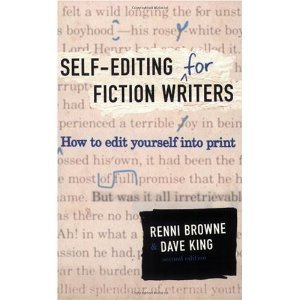 Browne and King have a website too, well worth a look if you want to check out the book before buying!
Browne and King have a website too, well worth a look if you want to check out the book before buying!
(Apologies, like most writers I just had a bout of insecurity!)
I have recently read another book published by the same author (I'll call it Book B), this one was published in 2005 and the exclamation marks in it are a very rare breed indeed. Barely a one.
Here is an example from Book A :
"More," she said. "No! don't go!" Her arms closed tighter."I'll be so cold! Stay with me!"
I'm fairly sure that if this passage were in Book B it would read:
"More," she said. "No. Don't go." Her arms closed tighter. "I'll be so cold. Stay with me."
So what has happened to the exclamation marks? Is it that as readers we prefer a more serious tone these days? For without them the passage certainly reads to me as more intimate and less melodramatic. Are there writers out there who have ceased to use exclamation points, and if so, why?
I have read in several creative writing books that exclamation marks are to be avoided in dialogue unless the person is actually shouting. This idea seems to have spread so that we are inclined to believe that any fiction with exclamation marks must be bad fiction.
Renni Browne in "Self-editing for Fiction Writers" says that:
"...there are the stylistic devices that make a writer look insecure, the most notable offenders being exclamation points and italics."
In Book A , the writer certainly did not look insecure, though there were at least one and sometimes as many as six exclamation marks on most pages. But it seems to me the reader is pretty adept at catching the prevailing tone of the book irrespective of the individual punctuation marks, and it was still a gripping and enjoyable read, and was reprinted again recently and was very well received. The punctation seemed a necessary part of her style.
So my question is - is the fashion for no exclamation marks just a fashion, or does it signify that we want to read a different, more serious type of literature?
I have to admit, they are rare on my pages, but then I am the product of a recent creative writing course where they nearly always got a red line through them when they did dare to appear. Perhaps it is the advent of creative writing courses, where the participants must be seen to be producing "serious" work that have endangered the exclamation point.
And by the way, I highly recommend "Self-editing for Fiction-Writers", especially for writers with no critique group to help them along.
 Browne and King have a website too, well worth a look if you want to check out the book before buying!
Browne and King have a website too, well worth a look if you want to check out the book before buying! (Apologies, like most writers I just had a bout of insecurity!)
Published on February 22, 2011 08:04
February 17, 2011
She Writes Bloggers Ball
Welcome to members of She-Writes participating in the Bloggers Ball. For those of you who don't know what this is, it's a blog hop for sites about books or writing. Full details here:
http://megwaiteclayton.com/1stbooks/
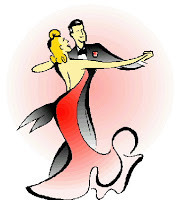 I am new to blogging, so my tips are a bit basic - but here they are. My top tip for bloggers is that most people are visual as well as verbal and a few pictures make all the difference.
I am new to blogging, so my tips are a bit basic - but here they are. My top tip for bloggers is that most people are visual as well as verbal and a few pictures make all the difference.
So dancing at the Bloggers Ball is not all about the words.
Writers sometimes need reminding to break up the text with pictures.And don't forget to ask permission or credit the online site you took them from, or link to it.
If you are a published writer you can link your blog to your Amazon.com author page by following the simple links at Author Central, thus gaining more readers, and also feed it to Goodreads via their author widget.
I am part of a group of writers - Macmillan New Writers, who are all published by the same imprint. We have a joint blog, which can be a good idea, to give each other mutual support and encouragement and to celebrate publications and successes, so that might be worth considering too - teaming up with a small group.
Isn't this a great way of seeing other people's blogs and sharing ideas - happy writing everyone.

http://megwaiteclayton.com/1stbooks/
 I am new to blogging, so my tips are a bit basic - but here they are. My top tip for bloggers is that most people are visual as well as verbal and a few pictures make all the difference.
I am new to blogging, so my tips are a bit basic - but here they are. My top tip for bloggers is that most people are visual as well as verbal and a few pictures make all the difference. So dancing at the Bloggers Ball is not all about the words.
Writers sometimes need reminding to break up the text with pictures.And don't forget to ask permission or credit the online site you took them from, or link to it.
If you are a published writer you can link your blog to your Amazon.com author page by following the simple links at Author Central, thus gaining more readers, and also feed it to Goodreads via their author widget.
I am part of a group of writers - Macmillan New Writers, who are all published by the same imprint. We have a joint blog, which can be a good idea, to give each other mutual support and encouragement and to celebrate publications and successes, so that might be worth considering too - teaming up with a small group.
Isn't this a great way of seeing other people's blogs and sharing ideas - happy writing everyone.
Published on February 17, 2011 15:04
February 9, 2011
Writer seeks imaginative readers
One of the things a writer must remember is that a book is a collaboration between the writer and the reader. When a reader constructs the images in their mind from my words they are using the powers of their imagination to make the story come to life. (Sebastian Faulk's new programme on the BBC which celebrates famous literary personalities demonstrates the power of the imagination of the reader for whom these fictional people - Heathcliffe or Lady Chatterley- have become real.)
So the worst reader as far as a writer is concerned has to be the reader with no imagination, who fails to be able to imagine the story world from the clues I have left them on the page.
Each reader's construct of the book they are reading is unique.
"For all the voices and masks of my performance, there is an intimacy with the reader. We are in this game together. Reading, real reading, is a strenuous and pleasurable contact sport. Fun, but it's not television. In "Art Objects" Jeannette Winterson calls reading sexy. I'll go along with that smart idea. Reading, I might say to my students, is not like dating; it's a matter of full engagement." Maureen Howard
So you might think then that a good reader might have a store of images or large amount of life experience, have met many different sorts of people so that they will be able to recognise something of my descriptions and identify with them. That is helpful, yes, but I think good readers are more - they are practised imagineers.
Imagination comes from practice - the more you read, the more adept you become at slipping into the fictional world you are reading. The more fictional characters you meet the easier it becomes to recognise and identify with certain types. Imagineers also imagine other things and are creative in other ways, however small, because reading is a creative act.
Of course as a writer it is our task to supply the reader with enough clues to be able to imagine that our characters live independent lives apart from the book. Some clues might seem as though they are useful but actually inhibit the imagination. Personally I do not like too much description of physical appearance. If for example I tell you that "Joan is blonde, 37 years old, dresses in pastel pink skirt and white shoes" then you will get a picture in your mind of Joan. However this may not be the sort of imaginative hook that will allow a reader to begin to make up an imaginary life for Joan. If on the other hand I tell you little about her appearance but say, "In our office, Joan was the person people forgot to ask when ordering the coffee," then maybe you might start to get to know Joan on the inside a little more and want to empathise with her and start to grow her a life.
Too much obvious research can kill a novel, and the flow of a story. We want to get the reader to contribute their half of the story and not do all the imaginative work for them. If I leave nothing to the reader the book will never be able to take flight in their heads.
There is a famous story about John Buchan, who wrote dozens of successful adventure novels. At one point in his career he was going to write a novel about the Canadian Arctic. This was way before he arrived in Canada to serve as governor general, and he knew nothing at all about Canada. Fortunately for him, his son had just returned from spending a year there.
"Tell me 10 facts about the Arctic," John Buchan demanded. The son began to list them, but his father interrupted after just three facts had been delivered: "That's enough. That's plenty. I can manage with that."
The rest he went ahead and invented.
Or rather the reader went ahead and invented.
So the worst reader as far as a writer is concerned has to be the reader with no imagination, who fails to be able to imagine the story world from the clues I have left them on the page.
Each reader's construct of the book they are reading is unique.
"For all the voices and masks of my performance, there is an intimacy with the reader. We are in this game together. Reading, real reading, is a strenuous and pleasurable contact sport. Fun, but it's not television. In "Art Objects" Jeannette Winterson calls reading sexy. I'll go along with that smart idea. Reading, I might say to my students, is not like dating; it's a matter of full engagement." Maureen Howard
So you might think then that a good reader might have a store of images or large amount of life experience, have met many different sorts of people so that they will be able to recognise something of my descriptions and identify with them. That is helpful, yes, but I think good readers are more - they are practised imagineers.
Imagination comes from practice - the more you read, the more adept you become at slipping into the fictional world you are reading. The more fictional characters you meet the easier it becomes to recognise and identify with certain types. Imagineers also imagine other things and are creative in other ways, however small, because reading is a creative act.
Of course as a writer it is our task to supply the reader with enough clues to be able to imagine that our characters live independent lives apart from the book. Some clues might seem as though they are useful but actually inhibit the imagination. Personally I do not like too much description of physical appearance. If for example I tell you that "Joan is blonde, 37 years old, dresses in pastel pink skirt and white shoes" then you will get a picture in your mind of Joan. However this may not be the sort of imaginative hook that will allow a reader to begin to make up an imaginary life for Joan. If on the other hand I tell you little about her appearance but say, "In our office, Joan was the person people forgot to ask when ordering the coffee," then maybe you might start to get to know Joan on the inside a little more and want to empathise with her and start to grow her a life.
Too much obvious research can kill a novel, and the flow of a story. We want to get the reader to contribute their half of the story and not do all the imaginative work for them. If I leave nothing to the reader the book will never be able to take flight in their heads.
There is a famous story about John Buchan, who wrote dozens of successful adventure novels. At one point in his career he was going to write a novel about the Canadian Arctic. This was way before he arrived in Canada to serve as governor general, and he knew nothing at all about Canada. Fortunately for him, his son had just returned from spending a year there.
"Tell me 10 facts about the Arctic," John Buchan demanded. The son began to list them, but his father interrupted after just three facts had been delivered: "That's enough. That's plenty. I can manage with that."
The rest he went ahead and invented.
Or rather the reader went ahead and invented.
Published on February 09, 2011 11:32
February 3, 2011
The Art of Mourning in the 17th Century
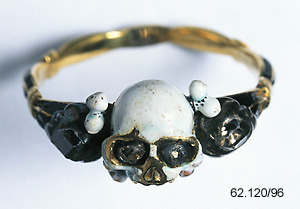 picture from The Museum of LondonMy post about 17th century Mourning Jewellery is at Historical Belles and Beaus here
picture from The Museum of LondonMy post about 17th century Mourning Jewellery is at Historical Belles and Beaus hereand you can read my post on coping with criticism as a writer at Nevets QST here and there's a draw for a free book!
Published on February 03, 2011 06:32
January 27, 2011
To the Moon
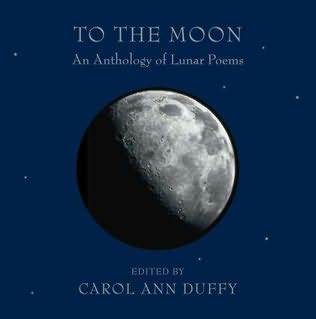 For the past few weeks I have been reading a few poems a day from "To the Moon" a anthology of lunar poems edited by Carol Ann Duffy, who must have had a fabulous time making this selection. What I love about it, is that the Moon is one of the few constants in humanity's ever-changing view, and because of this the collection enables us to see not just the Moon in all it moods but also the waxing and waning of poetry itself through the ages.
For the past few weeks I have been reading a few poems a day from "To the Moon" a anthology of lunar poems edited by Carol Ann Duffy, who must have had a fabulous time making this selection. What I love about it, is that the Moon is one of the few constants in humanity's ever-changing view, and because of this the collection enables us to see not just the Moon in all it moods but also the waxing and waning of poetry itself through the ages.Arranged chronologically the poems span from Sappho (500BC) to Alice Oswald who is still with us and every age between. From rampant rhyming romanticism to thinly-pared prose-poems, it's all here. A journey through the fads and fashions of poetry which makes us surprised we ever thought that way, and equally startled that we think this way now.
This one-pointed collection also tracks our relationship with the Moon from the purely mysterious and symbolic, to the mundane essential light before the advent of electricity, and beyond to the time of the Apollo space mission where it becomes mere conquered dirt under our feet. I suspect the anthology was produced on the anniversary of the Moon Landings. There are several poems inspired by mankind's "giant step" including poems by Dannie Abse and the marvellous "Translunar Space March" by Edwin Morgan which describes the plaque we have sent into Space to inform alien races who/what humans are.....
..."A deodorized American manwith apologetic genitals and no pubic hairholds up a banana-like right handin Indian greeting, at his side a woman,smaller, and also with no pubic hairis not alowed to hold up her hand,stands with one leg off centre, andis obviously an inferior sortof the same species. However, the male chauvinist pighas a sullen expression, and the womanis faintly smiling, sointerplanetary inteligences may still have homework."
If you haven't yet got a copy of this excellent book,you can see the moon rise today at 2.05 am and set again at 10.40. Plenty of time to write your own poem. Or you could wait for the next full moon on Friday 18th February and write by the light of it.

Published on January 27, 2011 05:35
January 20, 2011
Non-Fiction Fave - "The Gunpowder Plot" by Antonia Fraser
"There was a double eclipse in the early Autumn of 1605 - a lunar eclipse on 19th September, followed by an eclipse of the sun in early October........"
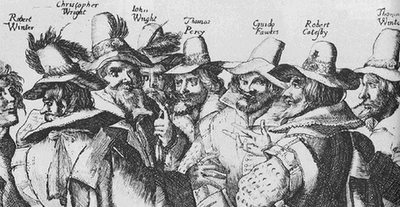
I thought I would share with you some of the Non-fiction titles I am using to research my next novel, which is set just after the Gunpowder Plot in the reign of James I.
Subtitled "Terror and Faith in 1605" Antonia Fraser's book "The Gunpowder Plot" on the subject is immensely readable and entertaining. Covering the political machinations and religious divisiveness that lead up to the plot itself, and ending with the anniversary a year later and the anti-catholic bonfires, it tells you all you need to know to really understand "Bonfire Night" as it is celebrated here in Britain.
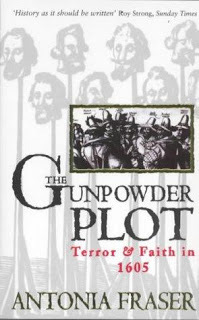 For the historical novelist there are extracts from letters and papers with sources so that these can be traced for more information. But even better she enables the reader to understand the weaknesses in character which meant that the enterprise would always be doomed for the plotters. It is illustrated with black and white contemporary paintings and engravings, maps and a family tree of the English succession. Very highly recommended.
For the historical novelist there are extracts from letters and papers with sources so that these can be traced for more information. But even better she enables the reader to understand the weaknesses in character which meant that the enterprise would always be doomed for the plotters. It is illustrated with black and white contemporary paintings and engravings, maps and a family tree of the English succession. Very highly recommended.


I thought I would share with you some of the Non-fiction titles I am using to research my next novel, which is set just after the Gunpowder Plot in the reign of James I.
Subtitled "Terror and Faith in 1605" Antonia Fraser's book "The Gunpowder Plot" on the subject is immensely readable and entertaining. Covering the political machinations and religious divisiveness that lead up to the plot itself, and ending with the anniversary a year later and the anti-catholic bonfires, it tells you all you need to know to really understand "Bonfire Night" as it is celebrated here in Britain.
 For the historical novelist there are extracts from letters and papers with sources so that these can be traced for more information. But even better she enables the reader to understand the weaknesses in character which meant that the enterprise would always be doomed for the plotters. It is illustrated with black and white contemporary paintings and engravings, maps and a family tree of the English succession. Very highly recommended.
For the historical novelist there are extracts from letters and papers with sources so that these can be traced for more information. But even better she enables the reader to understand the weaknesses in character which meant that the enterprise would always be doomed for the plotters. It is illustrated with black and white contemporary paintings and engravings, maps and a family tree of the English succession. Very highly recommended.
Published on January 20, 2011 09:27
January 13, 2011
"The Gilded Lily" US publication
I'm delighted to announce that "The Gilded Lily" will be published in the US by St. Martin's Press. This is excellent news, as those US readers who have enjoyed "The Lady's Slipper" will be able to find out what befalls Ella after she leaves its pages for a new life.
Published on January 13, 2011 05:10



